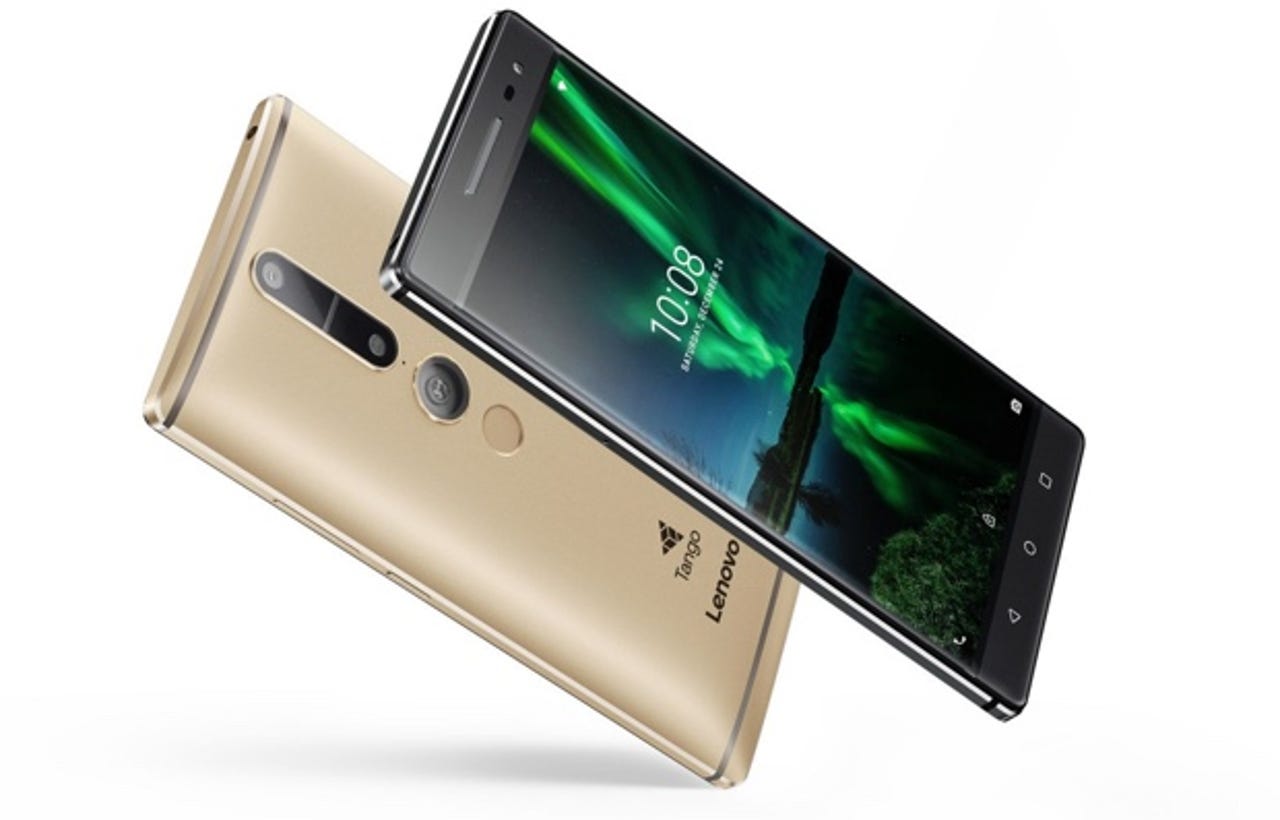Gimmicks and buzzwords won't save the smartphone industry


Phab 2 Pro smartphone
Yesterday saw Lenovo unveil a raft of new smartphones and phablets which it hopes will turn the tide on declining smartphone sales. But much of what was unveiled - folding displays, augmented reality, modular handsets - falls into the category of gimmicks. And gimmicks aren't something that the tech-buying masses are all that interested in.
See also: Google Chrome hacks: Make your browser faster, more efficient, and boost your productivity
Featured
Before I go on, let me explain what I mean by gimmick. No, I don't just mean anything that's new or different. If we just focus on the smartphone, then adding a camera, GPS, heart rate monitor, or a fingerprint reader didn't fall into the gimmick category. Why? Because it's not immediately obvious how to make use of these features. The same would be true if Lenovo had added, say, a blood pressure monitor or blood sugar monitor because, once again, it's immediately obvious how people would use these features.
Gimmicks, on the other hand, might be cool, and might induce "ooohs" and "ahhhhs" and utterances of "that's so cool," but beyond that brief period of limerence when you want to show off the feature to family and friends it's difficult to see a path to mainstream. After a while the faults and flaws and weaknesses of the feature start to emerge.
Six of the best Android smartphones: June 2016
Another thing to keep an eye out for is overuse of buzzwords. There's nothing wrong with buzzwords themselves, but real products move beyond buzzwords to real-world usage. If during a presentation or unveiling a company can't succinctly outline the real-world problems that are being solved, then that's a problem.
Another hallmark of a gimmick is the promise of "jam tomorrow," with ambiguous promises of how such-and-such technology will be big. Remember how Microsoft's Zune media player offered the ability to wirelessly share songs with other Zune owners, which would have been a cool feature except most Zune owners could never find someone else who owned a Zune to share stuff with.
So let's take a closer look at what was unveiled.
First off, there was a folding screen teaser. And that's all it was, a teaser. Total "jam tomorrow" used to get the audience jazzed up. Until there's a real product, we can skip this.
Next, there was augmented reality (AR) and virtual reality (VR), with are buzzwords thrown about a lot these days, so that was a red flag. But on top of that, while some ideas of how this could be used were tossed about in a "jam tomorrow" sort of way, it's hard to see how much real-world application there is right now. An app that takes you on a tour of real museums is not going to set the world alight (much in the same way that Apple's Live Photo feature hasn't caught on - it's just a cool idea that's devoid of any real framework for people to make use of it).
Then we come to new Moto (Hello, Moto, again...) modular handsets. Not only is this not new - LG beat them to it with the G5 - but the idea of a modular handset feels weak to me at best. I'm not against modularity in general - the PC is probably the most successful modular consumer electronics device - but trying to shoehorn modularity into a product, and selling it as a feature that will extend functionality or lifespan always feels disingenuous.
The idea that you can reuse mods from one handset in a future device is usually just nonsense. Technology moves on at too fast a rate to make this viable, and even the manufacturers themselves lose interest in supporting their hardware pretty quickly (quicker still if sales haven't gained traction).
I've also got to question the logic of Lenovo unveiling handsets in June that won't be available until September. Given that there will be two Apple events between now and then - WWDC, and an iPhone event in September - I doubt that many people will even remember these handsets by then. A tech firm really should be aware of how short attention spans are these days.
I'm not going to say that the smartphones that Lenovo unveiled aren't interesting, because they are, and I'm not going to say that they're not flagship-quality hardware, because again, the published specs say otherwise, but I'm having a hard time believing that a few gimmicks is going to kick off a new wave of smartphone sales (especially premium-priced smartphones).
Top 10 multitools: Be prepared for anything
See also:
- Top 10 fastest smartphones: Surprise! Apple and Samsung are nowhere near the top
- A major iPhone release every three years: It could work
- Transform your iPhone or Android smartphone into a satellite phone
- Apple's greed is getting in the way of growth and expansion into new areas
- The future belongs to Amazon, not Apple